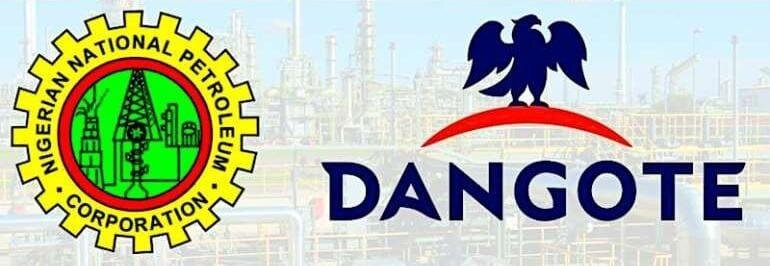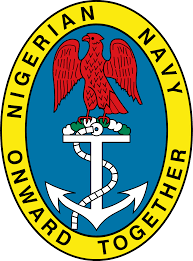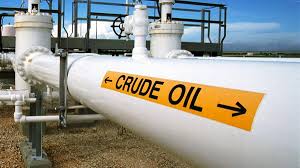By Paul Ejime
Abuja, Oct. 31, 2024 – Nigerians woke up on Tuesday 28 October 2024 to another petrol price hike, the fourth within 18 months under President Bola Tinubu’s administration with the outlets of the Nigerian National Petroleum Company Limited (NNPCL) increasing the pump price of Premium Motor Spirit (PMS) or petrol from 897 Naira to 1,025 Naira (1,600 Naira=1$USD).
Before the president announced the “end to fuel subsidies” during his inauguration speech in May 2023, the NNPCL sold PMS at 198 Naira per litre.
That controversial presidential announcement took the price to 540 Naira, and in July 2023 it went to 617 Naira, before climbing to 879 Naira per litre last September, and then the latest increase.
The NNPCL prices are usually the baseline. Fuel usually sells higher at private filling stations going for between 1,000 Naira and 1,400 Naira per litre, depending on the location in the country.
The September price rise coincided with the date that the Dangote Refinery, a $USD20-billion project set up by Africa’s richest man Aliko Dangote, rolled out PMS to save Nigeria’s blushes as a major oil producer that imports refined petroleum products and endures embarrassing shortages because its four state-run refineries are in disrepair.
The Port Harcourt refinery which the government promised would resume production in September has not do so and instead of the anticipated relief from Dangote’s private refinery, Nigerians are experiencing inexplicable increases in fuel prices.
Due to irregular electricity supply, compounded by the frequent collapse of the National Grid, the Nigerian economy depends heavily on petroleum products, and every increase in price affects manufacturing and production by industries and medium-and small-scale businesses.
The additional costs including in transportation are then passed on to the final consumers making the cost of living very high.
This, and other tough economic policies introduced by the Tinubu government, including the devaluation of the Naira, have resulted in more hardships and sporadic street protests against “hunger and Bad governance.”
Many Nigerians bearing the brunt of hardship, have discountenanced assurances by government officials that positive changes are in horizon.
According to the Nigeria Bureau of Statistics, oil exports account for about 80% of the country’s total revenue and the greatest tragedy is that transactions in Nigeria’s oil industry remain opaque and lack transparency with a so-called powerful “cabal” said to be making a kill for personal gains at the expense of the majority of the country’s long-suffering estimated 220 million people.
The industry plagued by one controversy after another, including the trading of accusations of sabotage by the stakeholders even after the latest intervention by the President Tinubu, who is also minister of Petroleum.
After Dangote refinery complained about its inability to source crude oil locally, it was agreed that the NNPCL should sell crude to local refineries in Naira, while markers should also buy refined products in the local currency to serve the final consumers.
However, that arrangement appears not to be working with the NNPCL as the sole off-taker from the Dangote Refinery, and also going by what Aliko Dangote, President and Chairman of Dangote Industries Limited (DIL) told journalists after a stakeholders’ meeting chaired by President Tinubu in Abuja on Tuesday.
Dangote is categorical that to end fuel shortages or long queues at filling stations in Nigeria, the NNPCL and marketers should stop importation of petrol.
The billionaire reiterated that at its full capacity of 650,00 barrels per day, his refinery based in Lekki, Lagos, can meet Nigeria’s domestic consumption with a surplus for export.
“What I estimated as our consumption daily is about 30-32 million litres…,” he said, adding: “…as we speak today, we have 500 million litres in our tanks. With that, even if there is no production anywhere or no import, that will (last) the country (for) more than 12 days.”
According to Dangote: “We are very ready, we are more than ready, and I am also putting my name on the line that we will be able to supply the market 30 million litres per day and we are ramping up…”
“I am expecting that the NNPCL and the marketers should stop importing, they should come and collect what they need,” he said, adding that “keeping half a billion litres in our tanks, …is costing me money. Every day, if I am to collect money, I can charge 32 percent in interest. That is what I am losing. If they come and collect then you will not see any queues in the filling stations,” Dangote affirmed.
There might be volatility in the World oil market, but at the rate the fuel price increase is surreptitiously introduced, Nigerians will probably brace for more surprises.
Meanwhile, Ghana has expressed interest to buy petroleum products from the Dangote Refinery to cut down on import expenditure.
Mustapha Abdul-Hamid, Chairman of Ghana’s National Petroleum Authority, said on Monday at the OTL Africa Downstream Oil Conference in Lagos that the plan to purchase Dangote Petroleum Products could end Ghana’s monthly fuel imports from Europe, estimated at $USD400 million.
“If the refinery reaches 650,000 barrels per day capacity, all that volume cannot be consumed by Nigeria alone, so instead of us importing as we do right now from Rotterdam, it will be much easier for us to import from Nigeria, and I believe that will bring down our prices,” Hamid explained.
Nigeria is still producing around 1.2 million barrels of oil a day, below its 1.5 million barrels a day Organisation of Petroleum Exporting Countries (OPEC) quota, thereby losing unearned millions in foreign currency.
Indeed, analysts see the crisis in Nigeria’s petroleum industry as man-made mismanagement, corruption and greed with successive governments and their allies cashing in on the deliberate confusion to make easy money from the cash-cow without accountability.
Ejime is a Global Affairs Analyst and Consultant on Peace & Security, and Governance Communications. Nigeria’s internet





